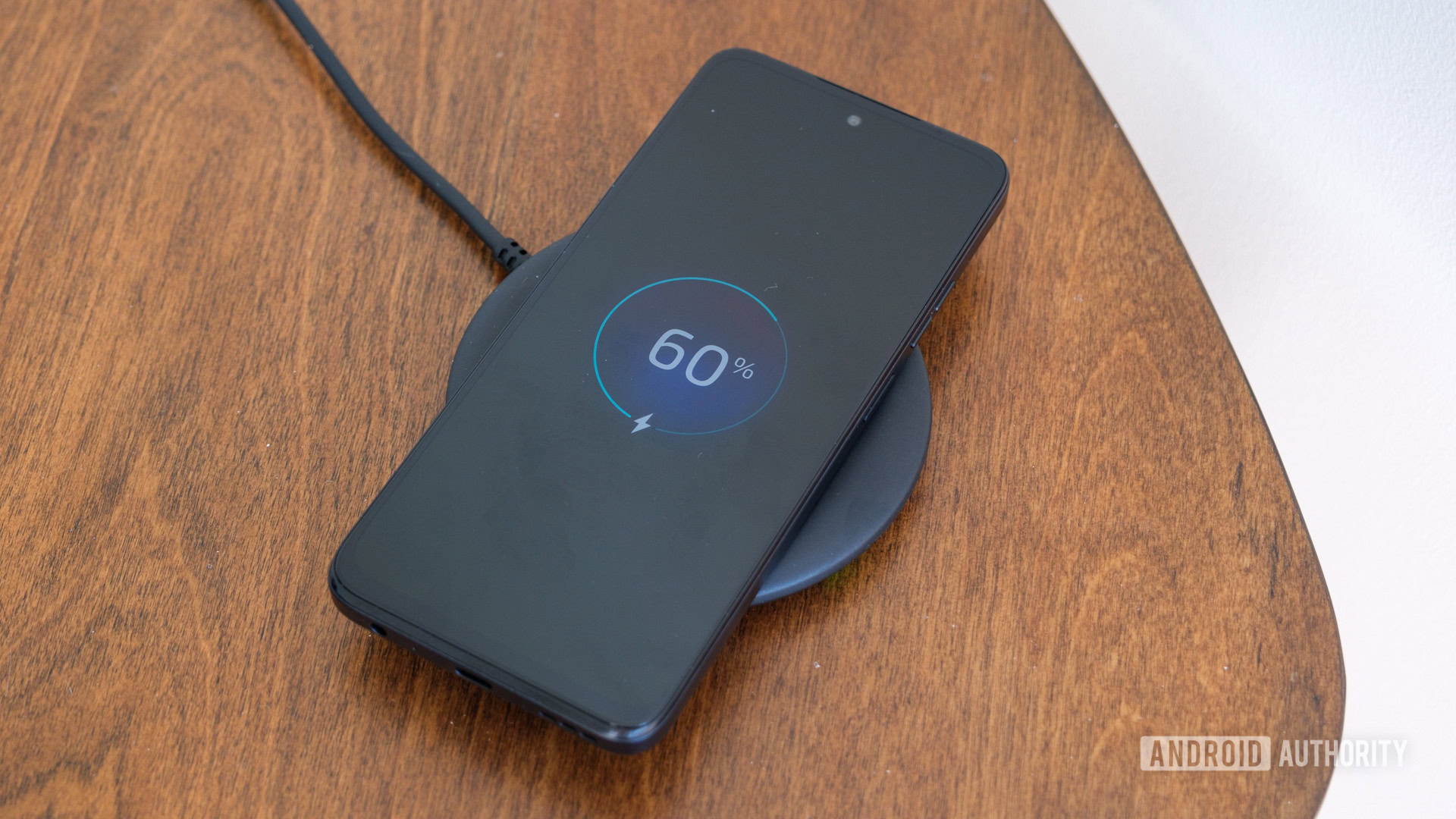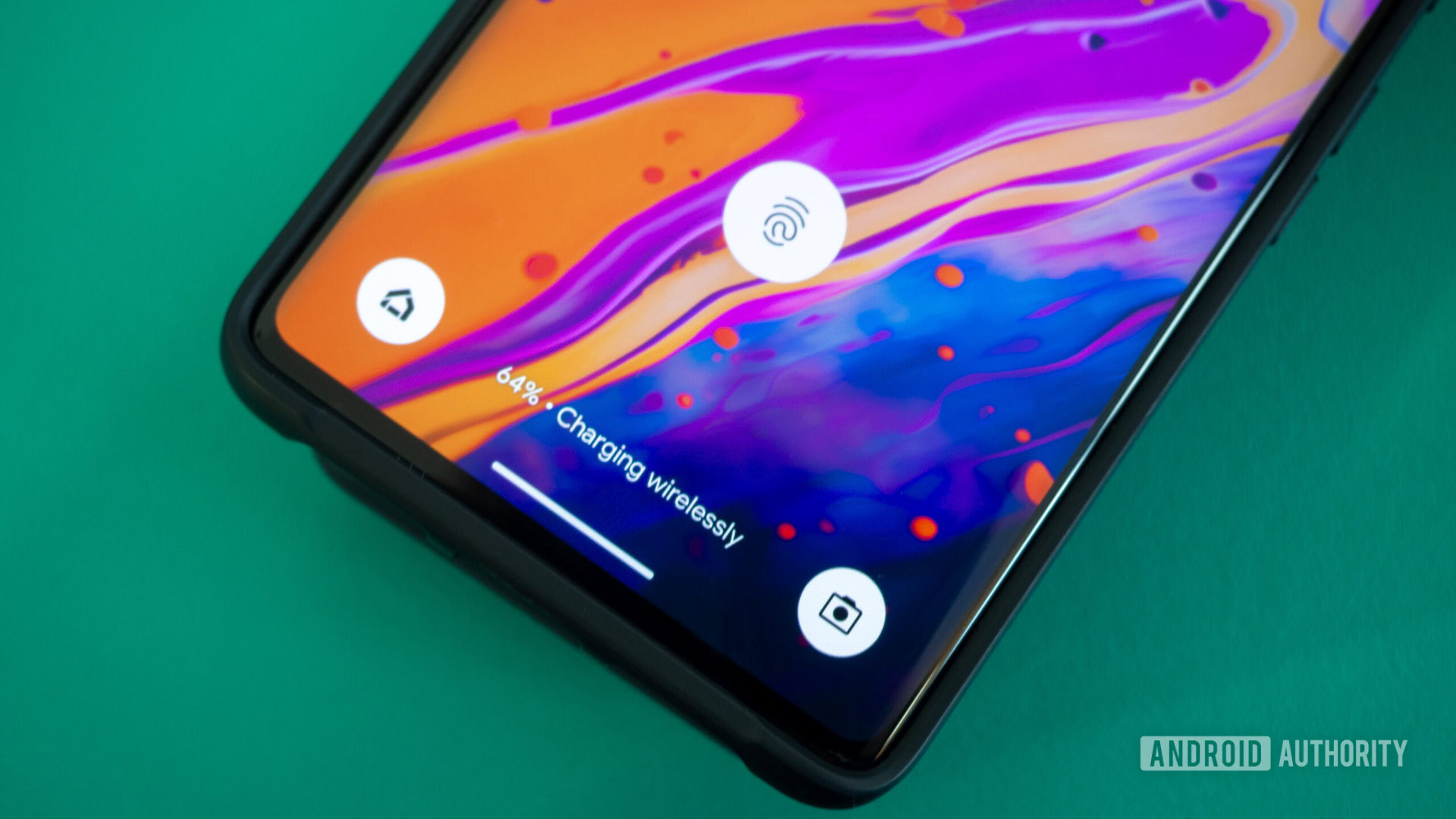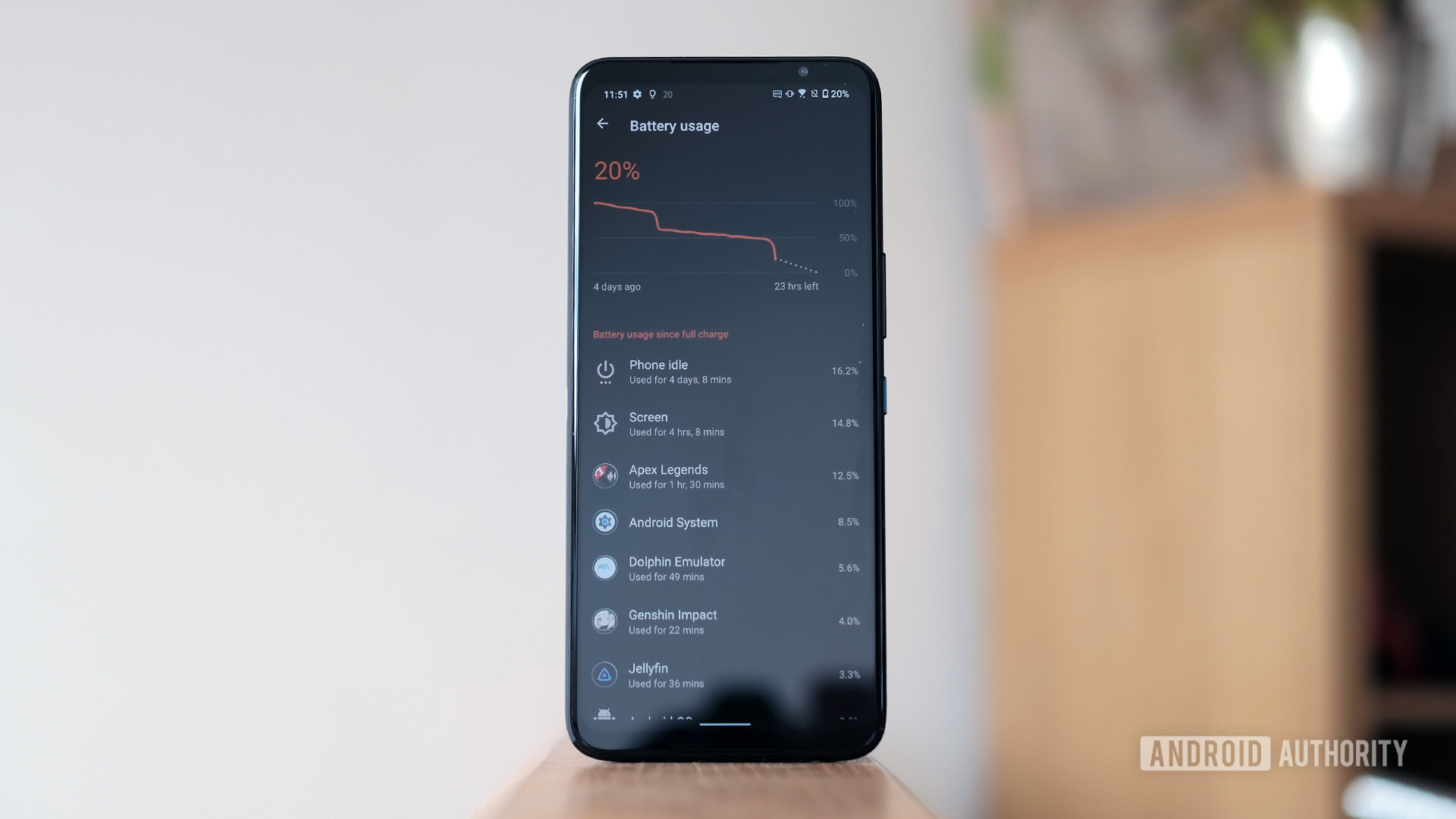Affiliate links on Android Authority may earn us a commission. Learn more.
Is wireless charging bad for smartphone battery health?
Published onMay 28, 2024

Most premium and upper mid-range smartphones ship with the ability to wirelessly charge these days. The feature allows you to keep your battery topped up throughout the day without the hassle of constantly plugging in every time you set down your phone. As convenient as this feature might be, however, should you worry about wireless charging affecting your smartphone’s battery’s health? Let’s break it down.
All things being equal, wireless charging isn’t inherently more harmful to your device or its battery than wired charging. That said, charging your device wirelessly generates more heat, which is bad for battery longevity. Samsung, Google, and other manufacturers sell wireless chargers with a built-in cooling fan to alleviate heating issues.
Is wireless charging good or bad for battery health?

First off, charging a battery in any way does wear it out to some extent. External factors like heat can accelerate this wear, reducing the battery’s capacity in the long term. And that’s exactly where wireless charging performs worse than conventional wired charging.
While charging, not all the power pulled from a wall outlet ends up reaching your device’s battery. It’s widely understood that the efficiency of wireless charging is around 80%. That figure could drop as low as 50% in the real world, depending on how well you align the coils in the charger and smartphone. Needless to say, wired charging is far more efficient since a copper wire conducts electricity extremely well and there’s no physical gap. We’ve compared 100W wired and wireless charging to confirm this hypothesis in the real world.
Coming back to wireless charging, the energy that doesn’t make it to your device gets converted into heat. And as we highlighted already, continued exposure to heat will degrade your device’s battery. Moreover, if you use a thick case with your smartphone, it could prevent it from cooling down quickly enough.
Wireless charging has the potential to generate excess heat, which can negatively impact battery health.
You’ll find that some of the best wireless chargers include a cooling fan to keep temperatures under control. The vast majority of public and in-car wireless chargers don’t include one, but these are typically restricted to lower power outputs like 5W. At such low wattages, there’s little heat generated so your device won’t overheat either. The downside is that it will take several hours to fully recharge your phone.
We expect wireless charging efficiency to improve in the coming years with the release of the updated Qi2 standard in 2024 flagship smartphones. It adds magnets around the wireless charging coil, which helps minimize losses due to improper placement.
All things considered, you don’t have to worry much about wireless charging causing smartphone battery degradation. Even if your phone does somehow get dangerously hot, modern battery management systems can communicate with the charger to either reduce power output or stop charging altogether. After all, the same protections exist for wired charging too.
Tips for long smartphone battery life

All smartphones have built-in measures to prevent damage from wireless charging, but here are a few steps you can take to lower the risk of damage even further.
1. Top up your battery frequently
Studies have proven that smartphone batteries last the longest when they’re kept between 20 and 80% of their maximum capacity. In other words, if you want to conserve battery health for as many years as possible, don’t charge to 100% regularly.
Instead of charging your phone overnight, you could top up the battery in short bursts throughout the day. Samsung and a handful of other manufacturers even offer the ability to limit charging to 85% for this very reason. Finally, if you won’t be using a battery-powered electronic device for a few weeks, don’t leave it fully charged for the same reason.
2. Keep your device cool
While ambient temperature isn’t always in your control, exposing your smartphone to extreme heat (or even cold) can lead to rapid battery degradation. Some scenarios that put undue stress on the battery include leaving your phone exposed to the sun or placing it under a pillow while fast charging.
Apple recommends avoiding temperatures higher than 95° F or 35° C and states that the ideal range is much lower than that at 62° to 72° F or 16° to 22° C.
3. Use super fast charging sparingly
While the impact of fast charging on battery health is not as well known, our own testing has shown that pushing more power increases heat output. The amount of heat generated varies depending on the smartphone in question, though, as no two technologies work the same. Some Android skins, like Samsung’s One UI, allow you to disable fast wireless charging within the battery settings menu.
4. Don’t use wireless charging overnight
If you have plenty of time to spare, like when you charge overnight, consider plugging your phone into the wall rather than relying on wireless tech. Moreover, try using a 10W or 18W fast charging brick as these don’t generate nearly as much heat. You don’t always need 65W or 150W charging, after all. You can also step all the way down to 5W if you don’t care about charging time at all. The same applies to fast wireless charging, as discussed above.
If all else fails, don’t forget that it’s possible to replace your smartphone battery. It can be a hassle if you don’t live near a repair center but it’s a lot cheaper than a brand new smartphone. Most brands charge less than $100 including taxes and labor. If you plan on using your device for five years or longer, it’s probably worth replacing the battery around the three-year mark.
FAQs
Yes, you can leave your phone on a wireless charger overnight but it’s recommended to turn off fast charging to prolong battery health.
Wireless charging has a few disadvantages compared to wired, namely increased heat production which can lower battery health in the long term.